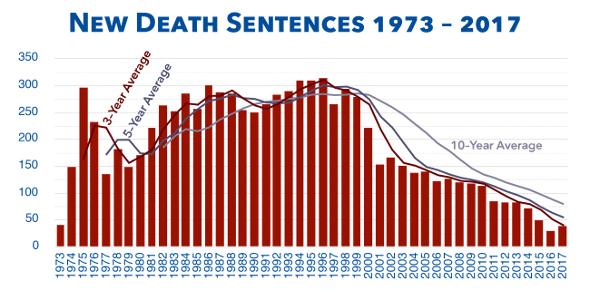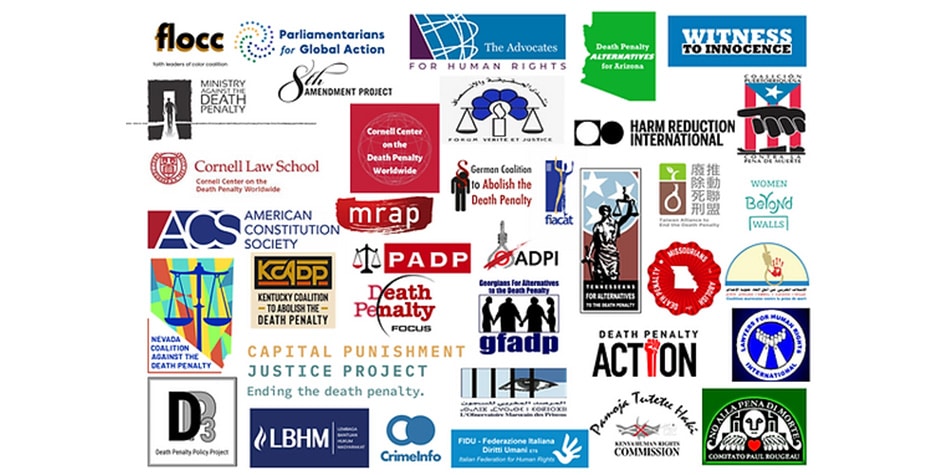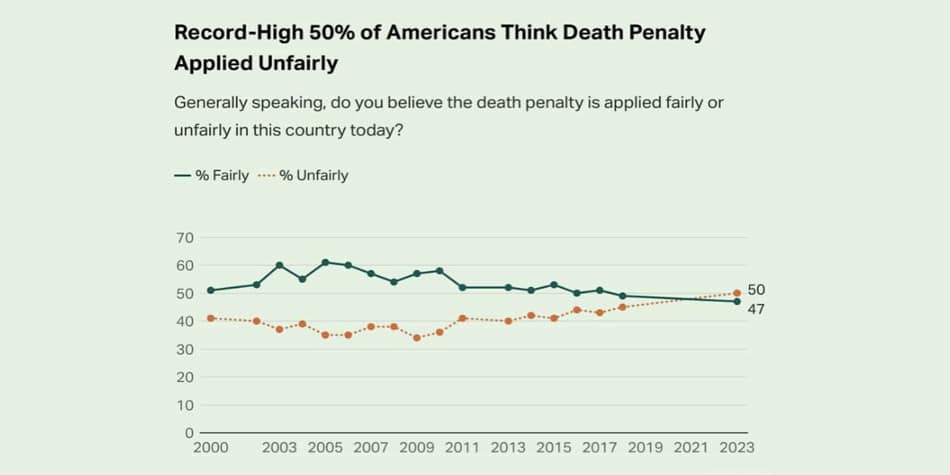
U.S. sees second fewest death sentences and executions in 25 Years
Good news
Executions and death sentences remained near historically low levels in 2017, as public support for the death penalty fell to its lowest level in 45 years, according to a report released today by the Death Penalty Information Center (DPIC). Eight states carried out 23 executions, half the number of seven years ago, and the second lowest total since 1991. Only the 20 executions in 2016 were lower. Fourteen states and the federal government are projected to impose 39 new death sentences in 2017, the second lowest annual total since the U.S. Supreme Court declared the death penalty unconstitutional in 1972. It was the seventh year in a row that fewer than 100 death sentences were imposed nationwide.
“The Death Penalty in 2017: Year End Report” is available at: https://deathpenaltyinfo.org/YearEnd2017.
“Perhaps more than any place else, the changes in Harris County, Texas are symbolic of the long-term change in capital punishment in the United States. For the first time since 1974, the county that has carried out more executions than any other did not execute any prisoner or sentence any defendant to death,” said Robert Dunham, DPIC’s Executive Director.
“Across the political spectrum, more people are coming to the view that there are better ways to keep us safe than executing a handful of offenders selected from a random death-penalty lottery. There will be times when numbers fluctuate – particularly following historic highs or lows – but the steady long-term decline in the death penalty since the 1990s suggests that in most of the country, the death penalty is becoming obsolete,” Dunham said. DPIC provides information and analysis and tracks data on the death penalty, but does not take a position for or against capital punishment.
The new death sentences imposed in 2017 highlight the increasing geographic isolation and arbitrary nature of the death penalty, Dunham said. “By themselves, three outlier counties – Riverside, CA; Clark, NV; and Maricopa, AZ – were responsible for more than 30% of all the death sentences imposed nationwide. The other 3,140 counties and parishes imposed fewer new death sentences than even last year’s record low.” Riverside imposed five death sentences in 2017, Clark four, and Maricopa three, and no other county imposed as many as two. It was the second time in three years that Riverside sentenced more people to death than any other county.
States scheduled 81 executions in 2017, but 58 of them – more than 70 percent – were never carried out. Nearly 75 percent of executions took place in four states: Texas (7); Arkansas (4); Florida (3); and Alabama (3). But Texas’s state courts stayed seven other executions using new laws to permit those prisoners to obtain judicial review of false or misleading evidence, and its execution total tied 2016 for the fewest conducted by the state since 1996.
Systemic problems with racial discrimination, flawed or fraudulent forensic testimony, poor legal representation, and prosecutorial misconduct contributed to four death-row exonerations in 2017. In one exoneration this year, an African-American man in Louisiana had been convicted of killing his infant son, even though an autopsy showed his son died of natural causes.
Many believe that the risk of executing the innocent is one of the leading factors behind the public’s decrease in support for the death penalty. According to the Gallup poll, public support for the death penalty dropped by five percent in 2017, and Republicans registered a 10-percentage point drop since last year. This year’s 55 percent support marks the lowest level since 1972, just before the U.S. Supreme Court ruled the nation’s death penalty laws unconstitutional.
To speak with Robert Dunham, DPIC’s Executive Director, please contact Jonathan Moore at jmoore@deathpenaltyinfo.org or 202-289-4022.
The Death Penalty Information Center (www.deathpenaltyinfo.org) is a non-profit organization serving the media and the public with analysis and information on issues concerning capital punishment. DPIC was founded in 1990 and prepares in-depth reports, issues press releases, conducts briefings for the media, and serves as a resource to those working on this issue.
Categories
United States






